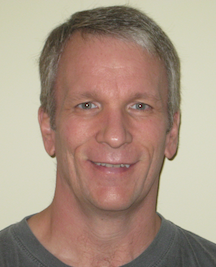Steve Vinoski
distributed systems aficionado
Basho Technologies

Steve Vinoski is an architect at Basho Technologies in Cambridge, MA, USA. He's worked on distributed systems and middleware systems for nearly 30 years, including distributed object systems, service-oriented systems, and RESTful web services. His interest in software quality and development productivity led Steve to start exploring and using Erlang in 2006, and he's used it as as his primary development language ever since.

Steve Vinoski is Giving the Following Talks
Tutorial: Erlang Web Frameworks
Erlang started life nearly thirty years ago as part of an effort to find more effective ways of developing highly concurrent, highly reliable telecommunications systems. Fortunately, we've found that its concurrency and reliability capabilities are just as valuable in other domains as well, especially web development. This tutorial will explore several Erlang web servers, including Yaws and Mochiweb, and will examine the Nitrogen, Webmachine, and Chicago Boss Erlang web frameworks. Each web server and framework provides different features and capabilities, allowing them to address different portions of the vast web development landscape.
Participants will gain deeper knowledge of the basics of Erlang web development, will learn how to use specific features of different Erlang web servers and frameworks, and acquire a better understanding of which servers and frameworks to apply to different kinds of web development problems.
Implementing Riak in Erlang: Benefits and Challenges
Riak is a scalable, reliable, open source distributed database modeled after Amazon Dynamo, and it also supplies additional features such as secondary indexes and full text search. Riak is accessible via a wide variety of programming languages but is implemented mostly in Erlang, and is primarily written and maintained by the developers at Basho Technologies. The choice of using Erlang has resulted in both benefits and challenges to the Basho team and Riak community.
In this talk, Steve will provide an overview of Riak, its internal architecture, and its Erlang implementation. Along the way he'll discuss the advantages and challenges of using Erlang to implement Riak.
Talk objectives: The goal is to supply attendees with details of the benefits and challenges of using Erlang/OTP for a highly scalable and reliable production system.
Target audience: Engineers considering using the Erlang/OTP platform as the basis for their applications, especially distributed apps, and in general anyone interested in learning more about Erlang. No prior Erlang knowledge is required.

